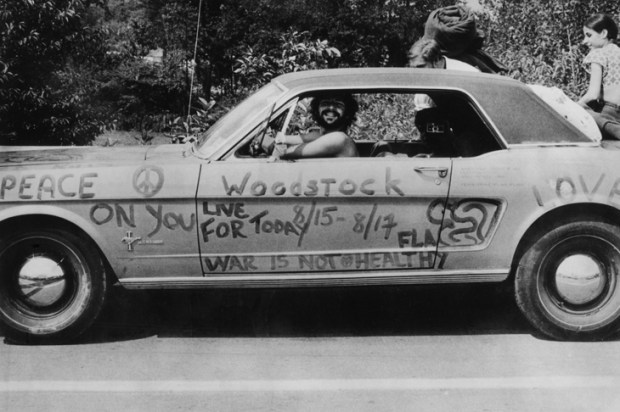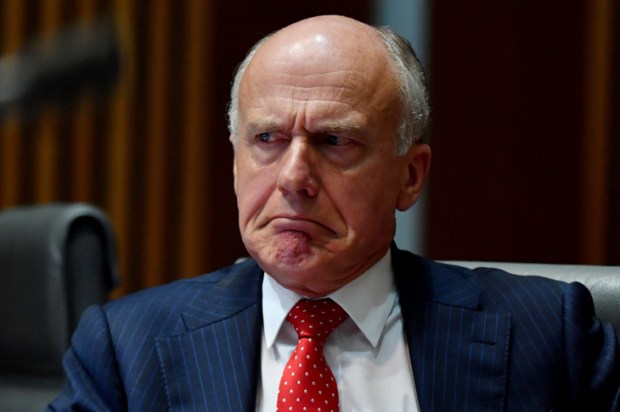The Prime Minister, to absolutely no-one’s surprise, has no plans to observe the Queen’s ninetieth birthday next month. Well, that’s not exactly true: Mr Turnbull is going to issue a stamp commemorating her double sapphire year. (That’s actually the gemstone associated with the big nine-oh – I googled it. Grandmothers, it’s never too soon to start dropping hints.) Even if he rolls out some last-minute festivities, there’s no way we’ll be able to compete with the United Kingdom. With celebrations spanning the better part of a week, complete with pageants and parades, they’re not going to see this momentous occasion pass without all due pomp and circumstance. Malcolm might be a republican, but surely there’s not much coming the way of national pride if Aussies are out-partied by the Brits.
Curiously, as republicanism is enjoying something of a renaissance in Australia, monarchism is rearing its head in the Middle East for the first time in decades. It’s no coincidence that this comes on the heels of the Arab Spring, from which sprung the likes of Isis and the al-Nusra Front. Islamic dynasties were, for the most part, a decidedly progressive force throughout the 20th century.
Pre-eminent among them was Iran’s Pahlavi shahs, a father/son duo who took power in 1927 and were ousted by Ayatollah Khomeini in 1979. Reza Shah, the elder, was a ferocious moderniser who shocked the world with his wide-ranging reforms. A bitter foe of the fundamentalists, he abolished sharia courts, replacing them with a French-style civil code. He employed French physicians to overhaul Iran’s healthcare system, founded its first medical school, and instituted compulsory vaccination. Disgusted with the position of women in his country, he banned the practice of wearing the veil in public and made female students eligible to study at the University of Tehran. And amidst all his social reforms, Reza Shah still found time to lay down 14,000 miles of railway and bring electric power to every city in his empire.
The majority of those Mid-Eastern monarchies still extant are decidedly within this reformist vein. While Moroccan Jews remain constantly under threat from Islamists, they have a strong ally in King Mohammed VI, who’s forged close ties to the Jewish community and has for years pleaded with émigrés in Israel to return. Jordan’s king, Abdullah II of the House of Hashim, won the West’s admiration last year for quite literally taking the fight to Isis: when the Islamic State captured and immolated a Jordanian fighter pilot, Abdullah responded by hopping into a jet and dropping bombs on Isis targets. To say we could use more Hashemites is an understatement.
And who knows? We may just get one – in Iraq. Last week, Iraqi Prime Minister Haider al-Abadi moved to reshuffle his cabinet and distributed a list of new potential ministers. Among them was one Sharif Ali bin al-Hussein. Sharif Ali is the leader of Iraqi Constitutional Monarchy, a centrist political party that advocates the restoration of the House of Hashim. He also happens to be the pre-eminent Hashemite pretender. That means the heir to the Iraqi throne might hold a senior post in his government while pushing his claim. It’d be like Francois Hollande giving the defense portfolio to Louis Bourbon of the Royalist Party.
Monarchism is becoming a small but considerable force in Afghanistan, too. The last Afghan king, Mohammed Zahir Shah of the House of Barakzai, returned from exile in 2002. Then-President Hamid Karzai greeted him with a warm embrace and bestowed on him the honorific ‘Father of the Nation’. This is no small peanuts: the monarchy has remained popular with tribal Afghanis – who’ve always been more inclined to conservatism than Islamism – since it was deposed in 1973. Some analysts speculate a majority of rural Afghanis would lend their support to a return to the monarchy. Meanwhile, Mohammed Daoud Khan – the King’s cousin, first president of Afghanistan, and an ambitious moderniser in the Pahlavi mold – is hailed by urban Afghani youths as a progressive icon. Even with more conventional voting blocs there’s little the way of stigma surrounding the monarchy. Two Barakzai princes, Zalmai Rassoul and Sardar Mohammad Nadir Naeem, ran for president as centrist independents in 2014. Naeem withdrew before voting began and endorsed Rassoul, who placed third.
Libya is also experiencing something of a royal revival. The House of Senussi maintains a fond niche in Libyans’ national consciousness for their fierce resistance to Italian colonialism. While it can’t be said what kind of popular support a formal monarchist movement would garner, it’s sufficient to attract a few notable critics. In an interview for the New York Times, Abdulrahman Swehli, an influential politician from Misurata, said: ‘We can’t go back 60 years. People who talk about these things are living in cloud cuckoo land.’ Sputnik, Russia’s state media organ geared toward pushing the Kremlin’s agenda to the West, claimed the US-led coalition was planning to bring the ‘New World Order’ to Libya by restoring the House of Senussi. Is that just a bunch of conspiracy theory rubbish? Probably. But you’re judged by the strength of your enemies, as James Bond said.
It’s always baffled me that black-armbanders like Messrs Turnbull and FitzSimons see republicanism as an extension of their progressivism. That’s not to say I don’t understand the logic prima facia: of course there’s something a bit odd about a multiracial country like Australia guaranteeing it will have an Anglo-Saxon head of state in perpetuity. But anyone reasonably well-acquainted with the history of monarchy, especially in the Middle East, will know that republicanism has more often than not been the favorite tool of racists and sectarians. For the Islamic world, monarchy is synonymous with religious pluralism, ethnic cooperation, gender equality, and economic dynamism. Why shouldn’t it be for us? So, as we all privately celebrate the Queen’s 90th birthday, let’s also raise a glass to the Pahlavis, the Hashimites, the Barakzais, and the Senussis. ‘All will be well,’ the old Cavalier ditty goes, ‘when the King enjoys his own again.’
Got something to add? Join the discussion and comment below.
Get 10 issues for just $10
Subscribe to The Spectator Australia today for the next 10 magazine issues, plus full online access, for just $10.
Michael Davis edits The Spectator Australia Facebook page, where you will find additional articles and comment including the popular ‘Wentworth Warbler’ series. Visit www.facebook.com/SpeccieOz/
You might disagree with half of it, but you’ll enjoy reading all of it. Try your first month for free, then just $2 a week for the remainder of your first year.













Comments
Don't miss out
Join the conversation with other Spectator Australia readers. Subscribe to leave a comment.
SUBSCRIBEAlready a subscriber? Log in